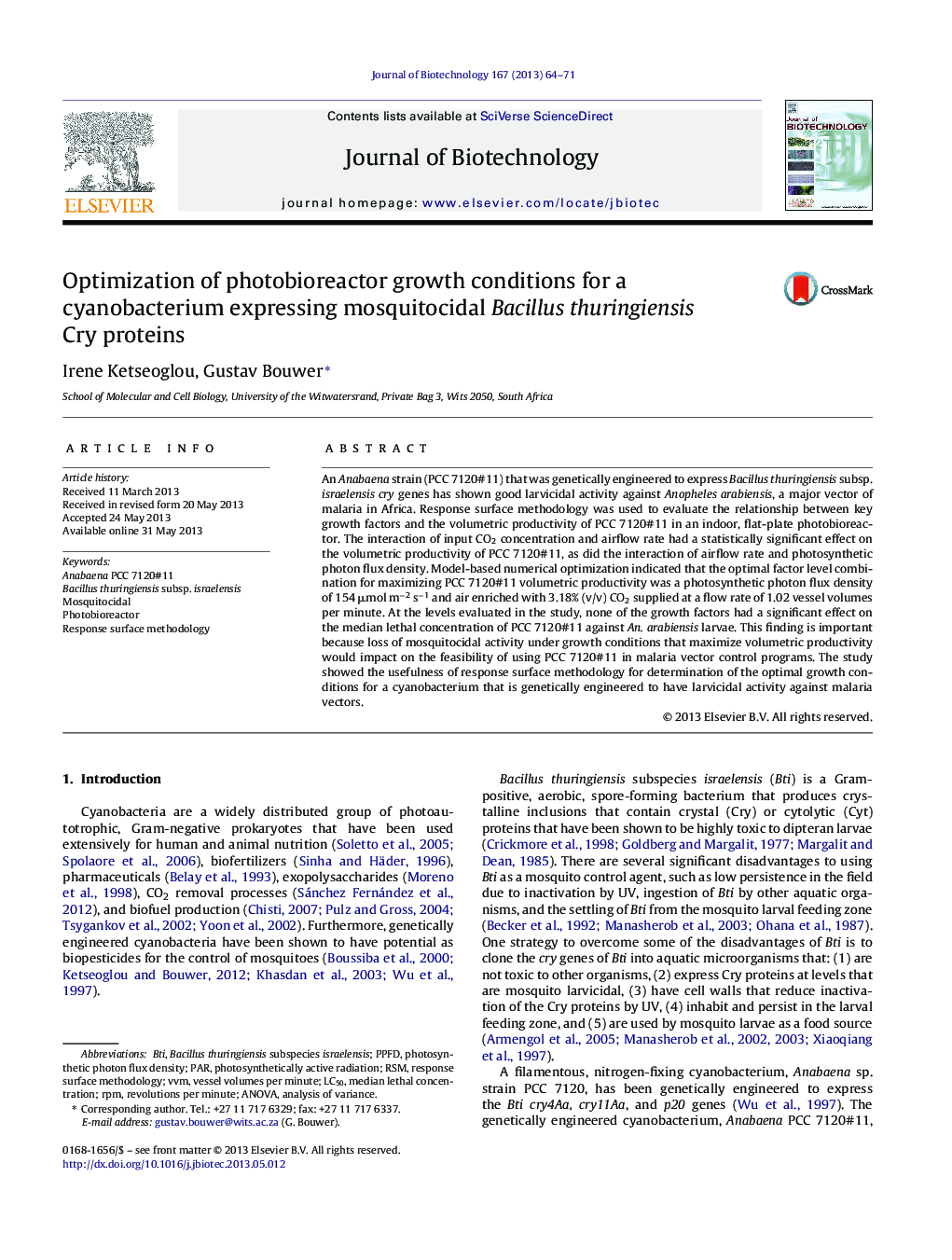| کد مقاله | کد نشریه | سال انتشار | مقاله انگلیسی | نسخه تمام متن |
|---|---|---|---|---|
| 23550 | 43451 | 2013 | 8 صفحه PDF | دانلود رایگان |

• Cyanobacterium (Anabaena sp.) genetically engineered for use in malaria vector control programs.
• Growth in flat-plate, inclined photobioreactor under artificial illumination.
• Productivity affected by interactions between PPFD, CO2 concentration and airflow rate.
• Optimization of volumetric productivity by response surface methodology.
• Mosquitocidal activity of the Anabaena sp. was maintained under diverse bioreactor conditions.
An Anabaena strain (PCC 7120#11) that was genetically engineered to express Bacillus thuringiensis subsp. israelensis cry genes has shown good larvicidal activity against Anopheles arabiensis, a major vector of malaria in Africa. Response surface methodology was used to evaluate the relationship between key growth factors and the volumetric productivity of PCC 7120#11 in an indoor, flat-plate photobioreactor. The interaction of input CO2 concentration and airflow rate had a statistically significant effect on the volumetric productivity of PCC 7120#11, as did the interaction of airflow rate and photosynthetic photon flux density. Model-based numerical optimization indicated that the optimal factor level combination for maximizing PCC 7120#11 volumetric productivity was a photosynthetic photon flux density of 154 μmol m−2 s−1 and air enriched with 3.18% (v/v) CO2 supplied at a flow rate of 1.02 vessel volumes per minute. At the levels evaluated in the study, none of the growth factors had a significant effect on the median lethal concentration of PCC 7120#11 against An. arabiensis larvae. This finding is important because loss of mosquitocidal activity under growth conditions that maximize volumetric productivity would impact on the feasibility of using PCC 7120#11 in malaria vector control programs. The study showed the usefulness of response surface methodology for determination of the optimal growth conditions for a cyanobacterium that is genetically engineered to have larvicidal activity against malaria vectors.
Journal: Journal of Biotechnology - Volume 167, Issue 1, 10 August 2013, Pages 64–71